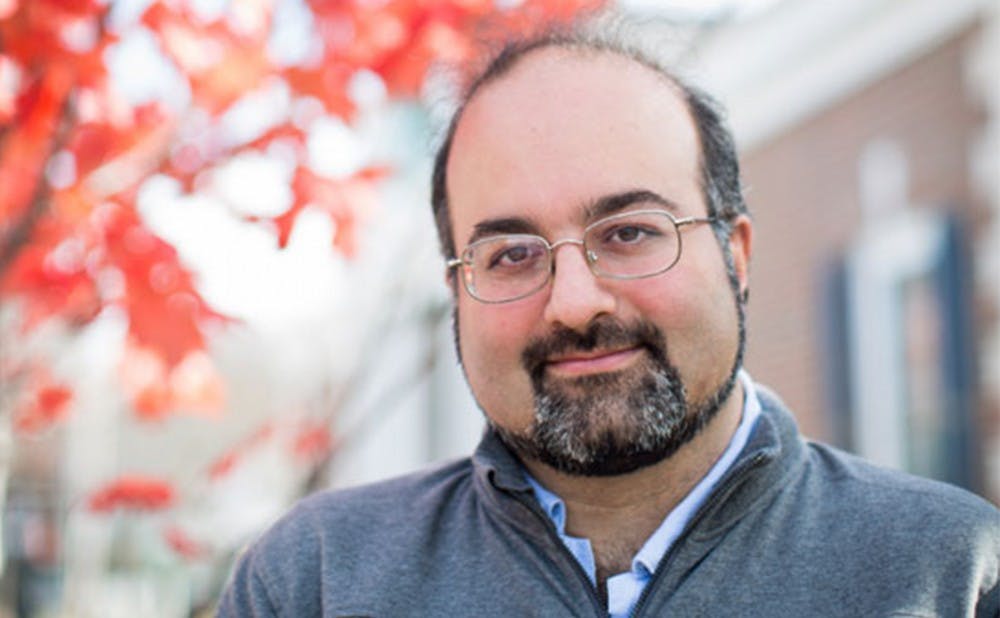Following President Donald Trump’s controversial travel ban on citizens of seven Muslim-majority countries, several Duke professors shared their thoughts on the executive order and its potential. Omid Safi is the director of the Duke Islamic Studies Center and a professor of Asian and Middle Eastern studies. Born in the United States and raised in Iran, he is of Iranian descent and has taught at Duke since 2014. Born and raised in Iraq, Abdul Sattar Jawad is currently a professor of comparative literature and Middle Eastern studies at Duke, and has taught at Duke since 2009. Negar Mottahedeh is an associate professor in the program in literature and has taught at Duke since 2002. She was born in Iran and raised in Norway.
Reactions to the ban
“I think the ban is unjust, illegal, racist, Islamophobic and prejudiced. It is a reminder of previous racist immigration policies in this country that discriminated against people of Asian and African background and sought to preserve the whiteness of America. Trump said during the campaign that he would completely shut down Muslim immigration, so why should we be surprised when his first step is to ban migration from seven Muslim-majority countries?”—Safi
“I think the ban is ill-advised and half-cooked, and it came at a time when the new president is in need of possessing sound knowledge of the Middle East, which is volatile and the birthplace of the three major Semitic religions.” —Jawad
Impacts on legal immigrants in America
“The ban has had a terrible impact on all American Muslims, who feel further and further stigmatized. How profoundly disappointing to see racist Islamophobes advising President Trump. It has had a particularly harsh impact on Muslims with roots or family members in these seven countries, preventing us from having our families visit us here, in some cases for us to visit there, and has had a direct impact on about a hundred students in the Triangle area who are legally here in America.”—Safi
“I know some Iraqi green card holders who are reluctant to travel to Jordan, for example, because of the ambiguity and confusion created by the ban. Even some who hold dual citizenship cancelled plans to travel overseas. Who knows?” —Jawad
“The work I do takes me all over the world for academic conferences, film festivals and research collaborations with colleagues. But even though I’m on a paid sabbatical to continue working on my research, a rare academic privilege that happens only every seven years at Duke, I can’t go anywhere... Going anywhere for work or family means not knowing I can come back to pursue my dreams or to serve my profession doing what I adore more than anything in the world.” — Mottahedeh originally wrote in an article for a publication called the Observer
Repercussions for the Middle East
“As related to Iraq, the ban came as a shock because there are thousands of Iraqis working with the American troops and advisers to fight the terrorist groups. Creating more enemies is no strategy and could endanger America's allies and Israel in particular. Make no mistake that the largest Muslim countries are within the American orbit—Indonesia, Pakistan, Turkey, Egypt, India. To make America safer, we need to win the mind and hearts of all countries regardless of their ethnic or religious background.”—Jawad
A betrayal of American values
“The Statue of Liberty was called the ‘Mother of Exiles’ in the poem 'The New Colossus' inscribed at its base. How sad that in an age of unprecedented suffering, we are shutting our doors on the victims of terrorist attacks, re-victimizing them by suspecting the very victims of being the terrorists.” —Safi
Correction: Negar Mottahedeh was born in Iran, not Iraq. The Chronicle regrets the error.
Get The Chronicle straight to your inbox
Sign up for our weekly newsletter. Cancel at any time.

